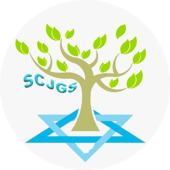There are many resource guides that will help you begin your research. Below is a brief guide.
- Interview your family (aunts, uncles, parents, grandparents), friends and neighbors. Start with your elders. Ask for copies of all photos and documents pertaining to vital life events, immigration, naturalization and education. Take notes and record the interview on video or audiotape. Listen to these recordings, create a transcript and list important relevant information.
- Gather documents, photographs, heirlooms, and artifacts across generations. These may include wedding invitations and photographs, metric documents (birth, death, marriage certificates), naturalization and citizenship information, ship manifest, passports, social security information, military papers, school reports cards, obituaries, diplomas, etc. Make sure to preserve these valuable documents in archival quality ink, acid-free paper and speciality plastic.
- Organize your information. Begin making a family tree either using an online website or print one of our forms below. Remember to be thorough and record the source of each document you find even if you have multiple conflicting information.
Upcoming Events
Sunday, October 27, 1 pm Pacific
Speaker: Michelle Leonard, Professional Genetic Genealogist
A Guide To Segment Data, Chromosome Browsers & Conventional Chromosome Mapping (1.5 hrs)
Sunday, November 17, 1 pm Pacific
Speaker: Thomas MacEntee, Professional Genealogist
Translating and Transcribing Documents for Jewish Genealogical Research Using AI 1.5 Hr WORKSHOP
Sunday, December 8, 1 pm Pacific
Speaker: Susan Weinberg, Jewish Genealogist
Crossing the Ocean: US Records to Ancestral Towns
Sunday, January 12, 1 pm Pacific
Speaker: Judy Russell, The Legal Genealogist
No Vitals? No Problem! – Building a Family through Circumstantial Evidences
Sunday, February 2, 1 pm Pacific
Speaker: Paul Woodbury, Genetic Genealogist
Endogamy in Context: Pioneers, Latecomer, Coverage and More
Sunday, February 23, 1 pm Pacific
Speaker: Sunny Morton, Professional Genealogist
Comparing the U.S. Newspaper Giants: What Jewish Content Do They Have?






